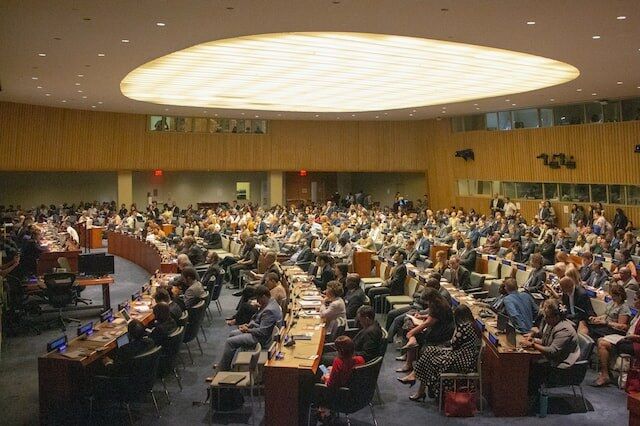Modern Slavery
UK warns UN Security Council about Ukraine trafficking threat
The UK's delegate on the United Nations Security Council has warned that Ukrainian women and children face an increased risk of exploitation by criminals as they flee the conflict in their country.
At a meeting of the body on Monday, Lord Tariq Ahmad highlighted "deeply disturbing" reports of rape and sexual violence perpetrated by Russian soldiers. And he stressed that it is continuing outside Ukraine. He said:
"The violence and exploitation does not end there – beyond the borders, displaced Ukrainian women and girls, as we’ve heard again today, face heightened risks of trafficking, a point made by UNICEF, and also sexual exploitation by criminal gangs".
CARE has been warned of trafficking risks since the start of the conflict, both at the Ukraine border as vulnerable refugees seek help from strangers, and across Europe.
The risk of refugees being targeted by criminals is also present in the UK as thousands seek to settle here whilst the conflict is ongoing.

CARE's trafficking policy expert, Lauren Agnew, has cautioned that well-motivated initiatives like the UK Government's Homes for Ukraine scheme could be exploited. Ms Agnew has said:
“Whilst the drive to settle Ukrainian refugees in the UK is laudable, the Government must be mindful of potentially dangerous loopholes in the scheme. We have warned that traffickers will be viewing this situation as an opportunity to exploit vulnerable women and children. It is possible for people who are themselves victims of exploitation to be ‘put up’ to act as sponsors by criminals to evade safeguarding checks.
“We are also acutely concerned that social media is being used by those with bad intentions to target refugees. Already, unregulated groups and accounts are springing up on platforms such as Facebook. Traffickers and other criminals will be amongst those masquerading as kind individuals wanting to help. Ukrainians eager to seek refuge in the UK can have little assurance that the person they are dealing with on social media platforms is genuine.
“It is also possible that sexual predators will try to connect with women on these social media sites and could apply to ‘host’ them. The authorities must be wise to such dangers and ensure that proper checks are carried out in the short term, and in the months and years ahead. Local authorities tasked with follow-up checks should also be trained to spot the signs of exploitation which are often subtle.”
To find out more about CARE's work to curb human trafficking, modern slavery and commercial sexual exploitation, visit out causes page.
Share
